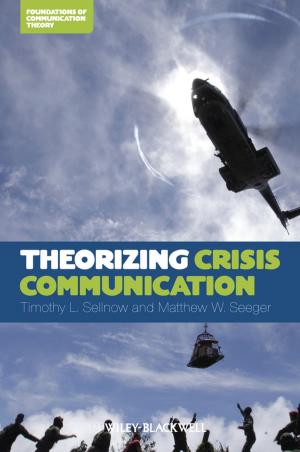State Theory
Putting the Capitalist State in Its Place
Nonfiction, Social & Cultural Studies, Political Science| Author: | Bob Jessop | ISBN: | 9780745667355 |
| Publisher: | Wiley | Publication: | April 30, 2013 |
| Imprint: | Polity | Language: | English |
| Author: | Bob Jessop |
| ISBN: | 9780745667355 |
| Publisher: | Wiley |
| Publication: | April 30, 2013 |
| Imprint: | Polity |
| Language: | English |
This volume develops a novel approach to state theory. It offers a comprehensive review of the existing literature on the state and sets a new agenda for state research.
Four central themes define the scope of the book: an account of the bases of the operational autonomy of the state; the need to develop state theory as part of a more general social theory; the possibilities of explaining 'capitalist societalization' without assuming that the economy is the ultimate determinant of societal dynamics; and a defence of the method of articulation in theory construction.
In developing these issues, Bob Jessop both builds on and goes well beyond the view presented in his earlier books, The Capitalist State (1982) and Nicos Poulantzas (1985). The result is a highly original statement which will become a center-point of discussion. The volume confirms the author's standing as one of the most important post-War Marxist state theorists.
This volume develops a novel approach to state theory. It offers a comprehensive review of the existing literature on the state and sets a new agenda for state research.
Four central themes define the scope of the book: an account of the bases of the operational autonomy of the state; the need to develop state theory as part of a more general social theory; the possibilities of explaining 'capitalist societalization' without assuming that the economy is the ultimate determinant of societal dynamics; and a defence of the method of articulation in theory construction.
In developing these issues, Bob Jessop both builds on and goes well beyond the view presented in his earlier books, The Capitalist State (1982) and Nicos Poulantzas (1985). The result is a highly original statement which will become a center-point of discussion. The volume confirms the author's standing as one of the most important post-War Marxist state theorists.















